Looking Forward to Joint Research Collaboration with Universiti Tunku Abdul Rahman, Malaysia 2024
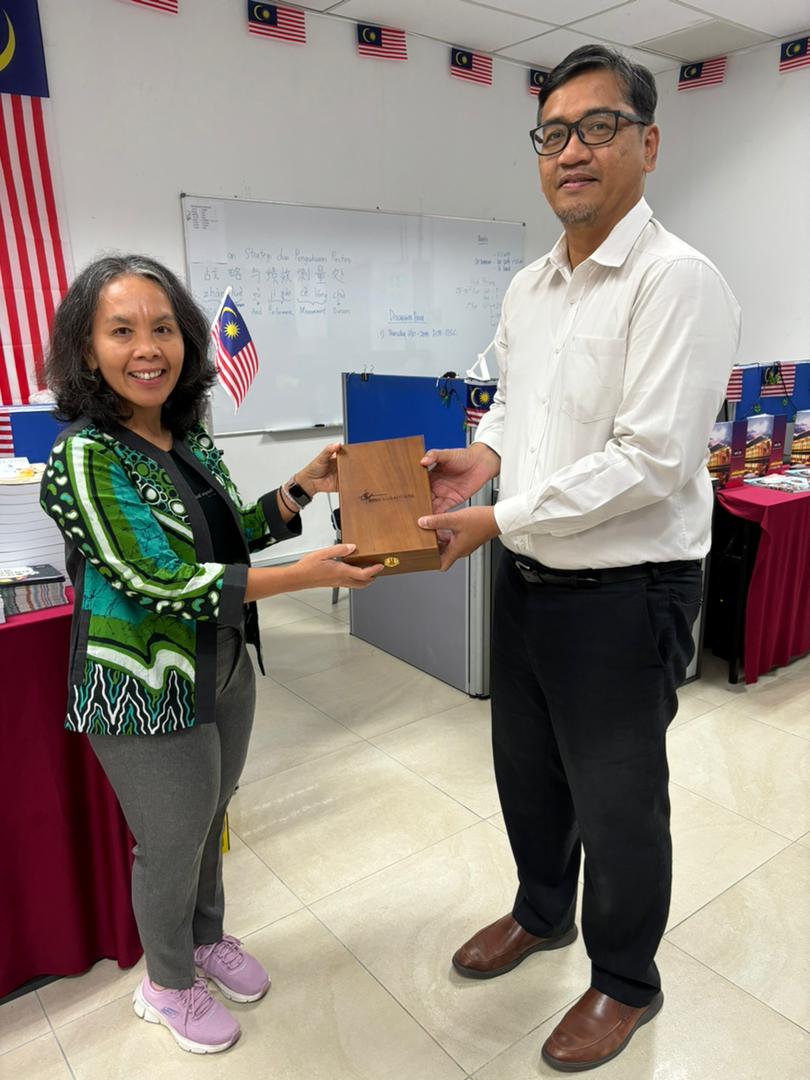
An official benchmarking plaque is given by Dr. Nesti F. Sianipar, S.P., M.Si to Profesor Ts. Faidz Abd Rahman, Vice President Research & Development and Commercialization, Universiti Tunku Abdul Rahman.
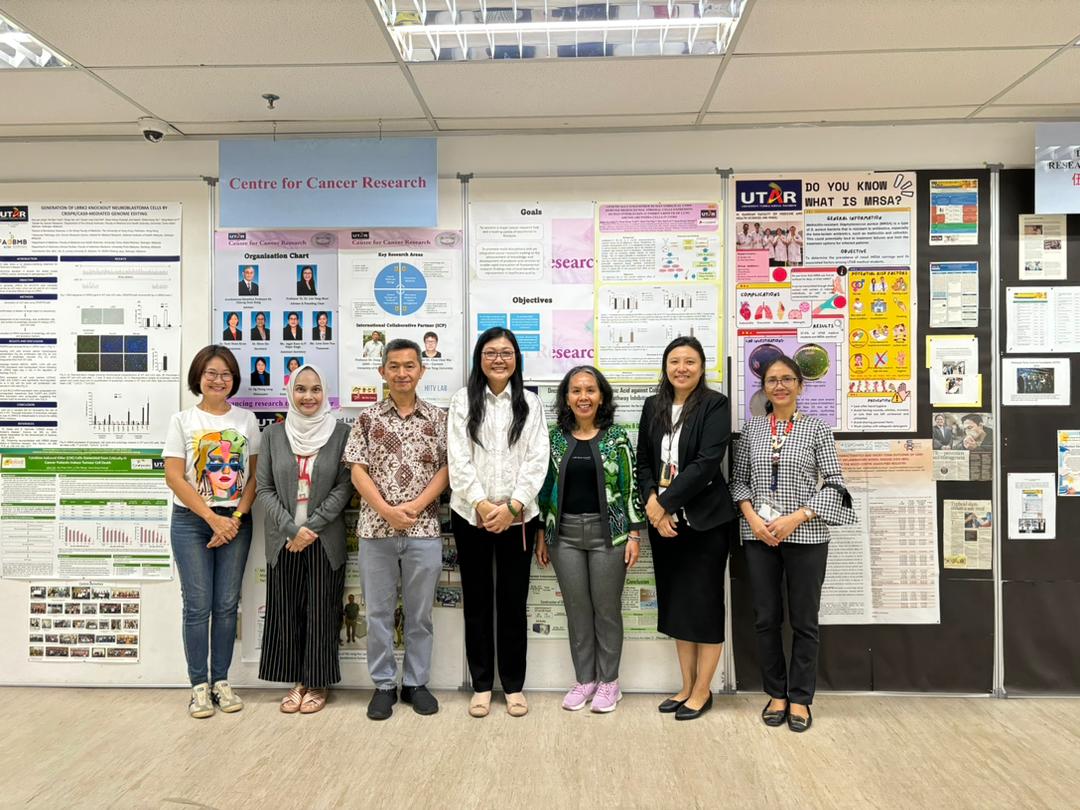
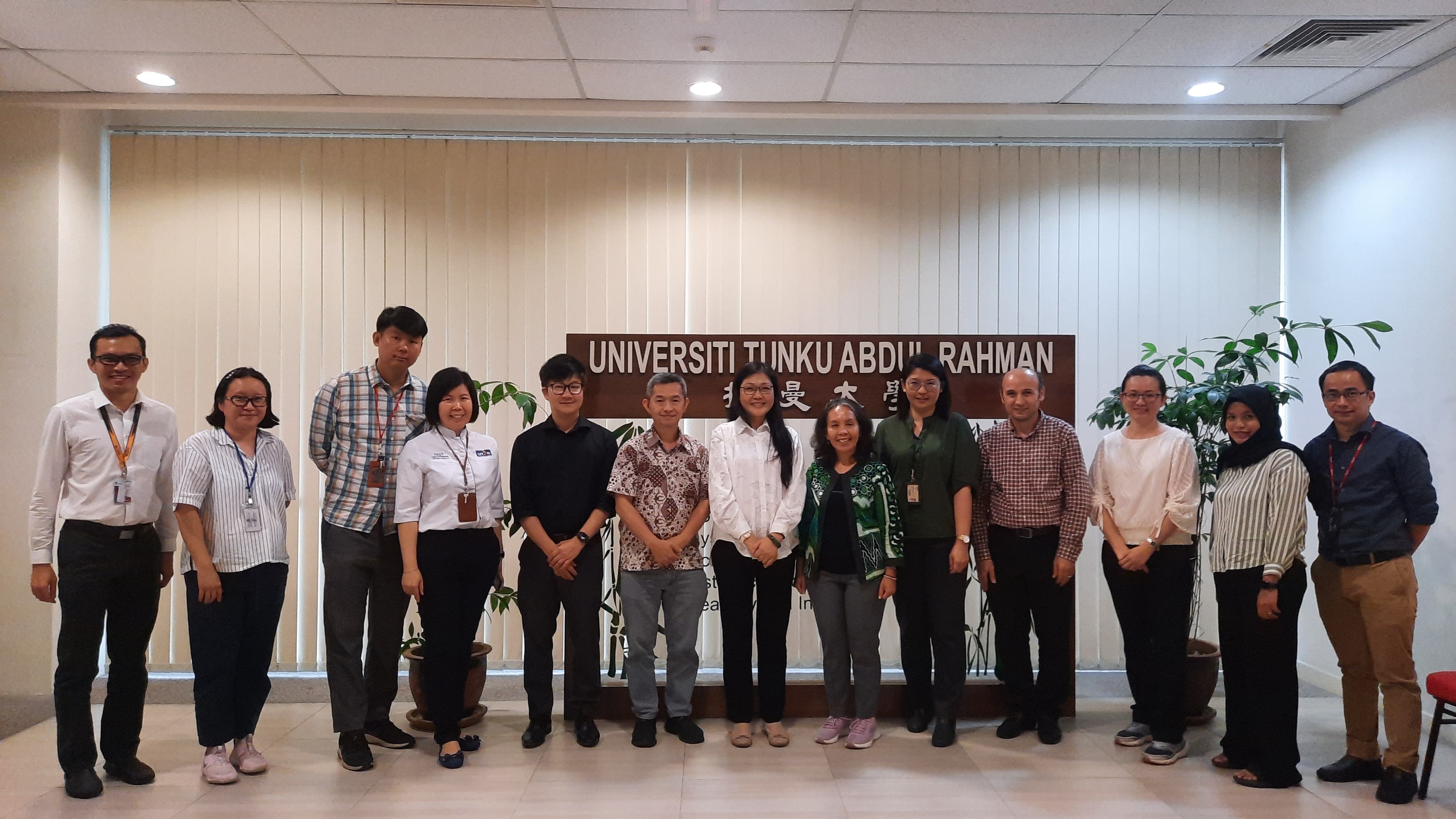
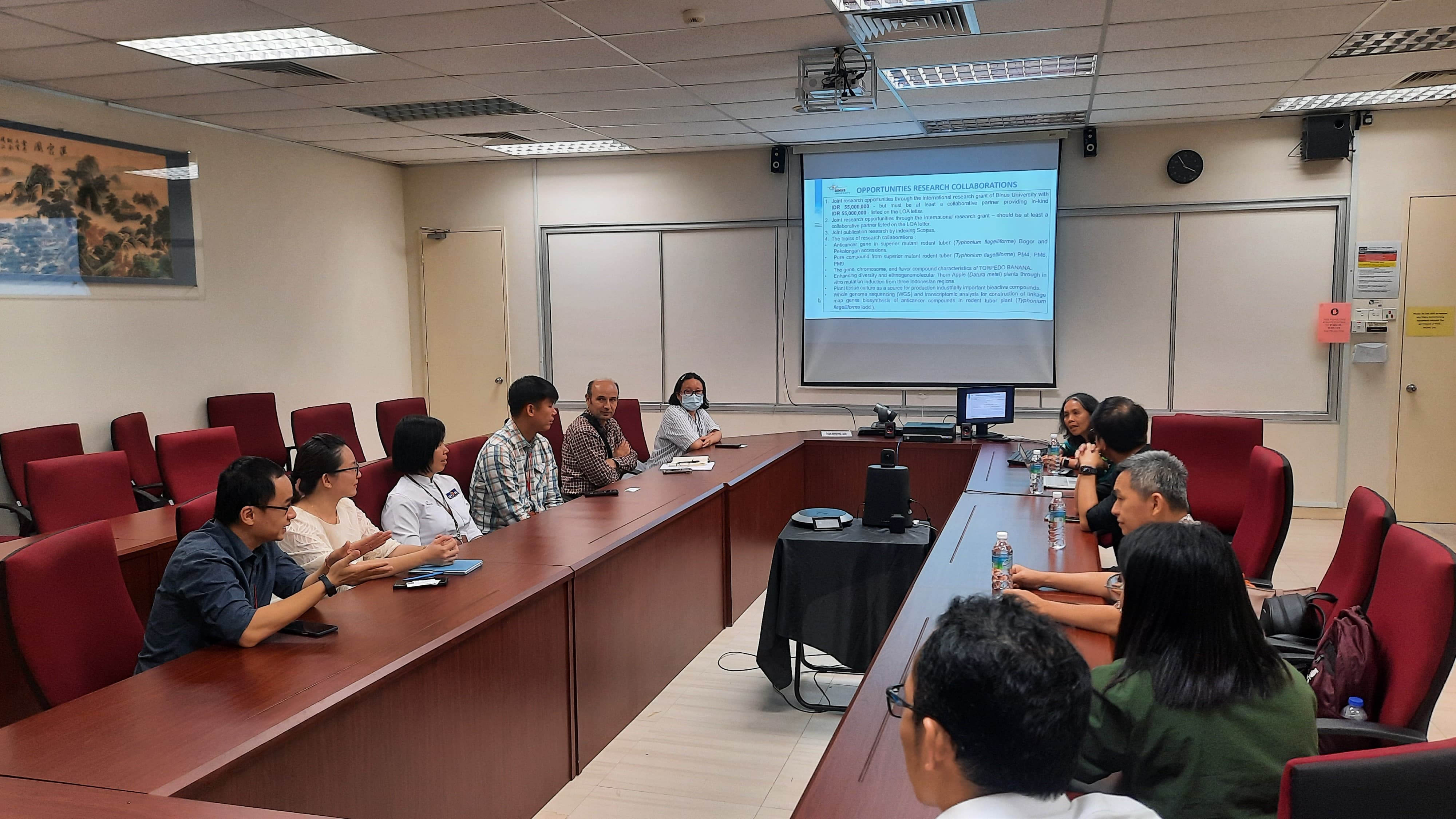
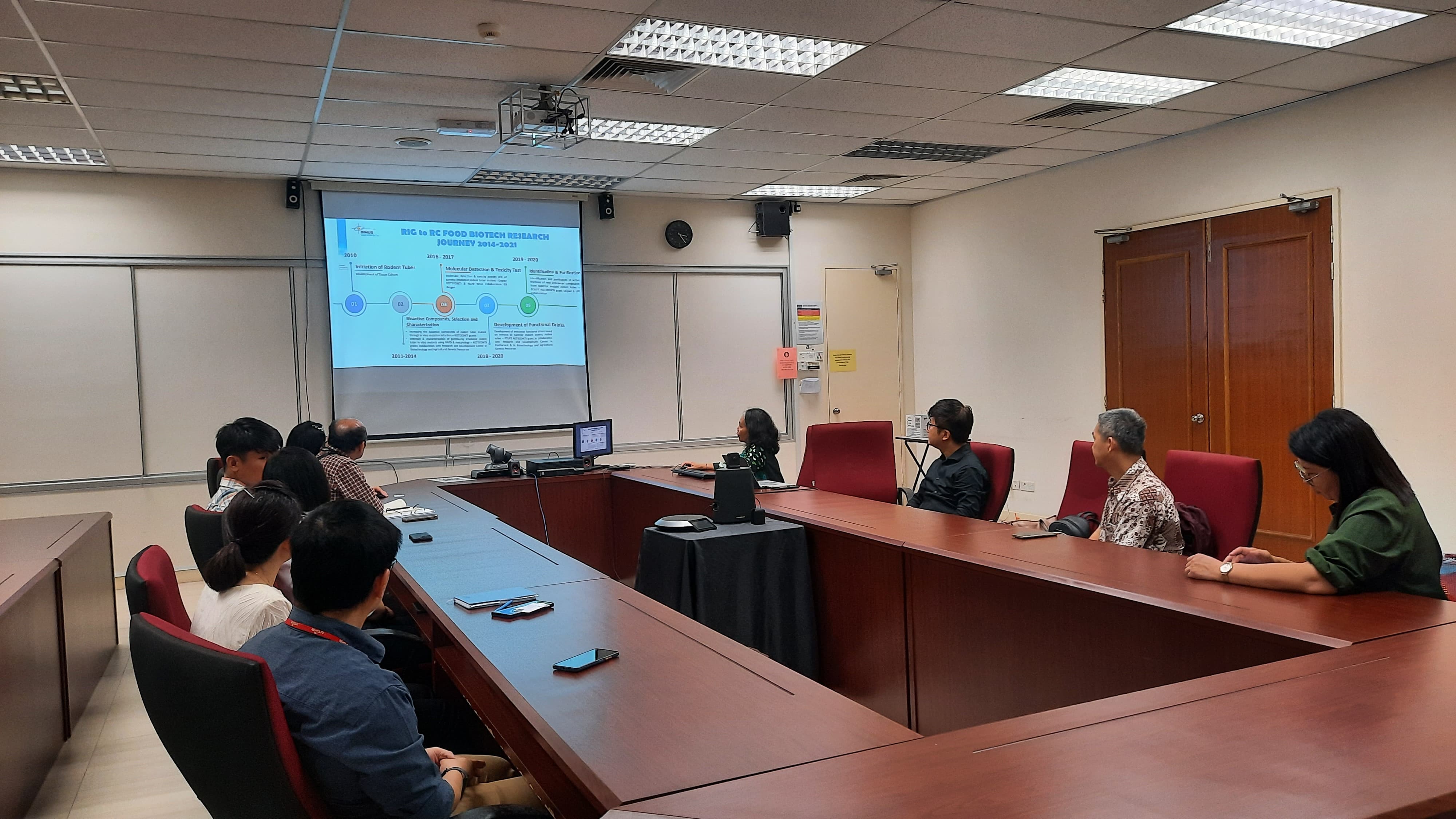
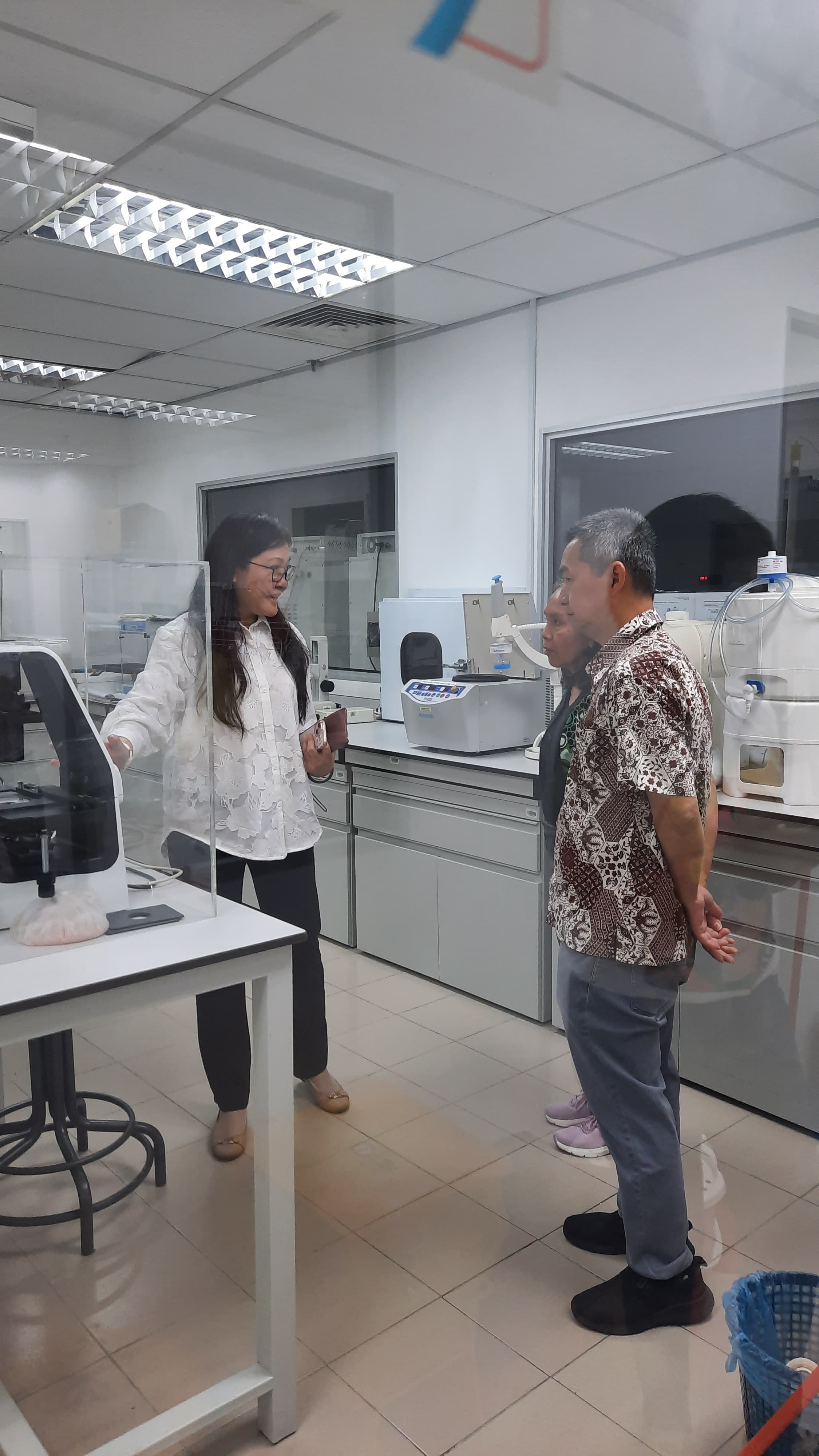
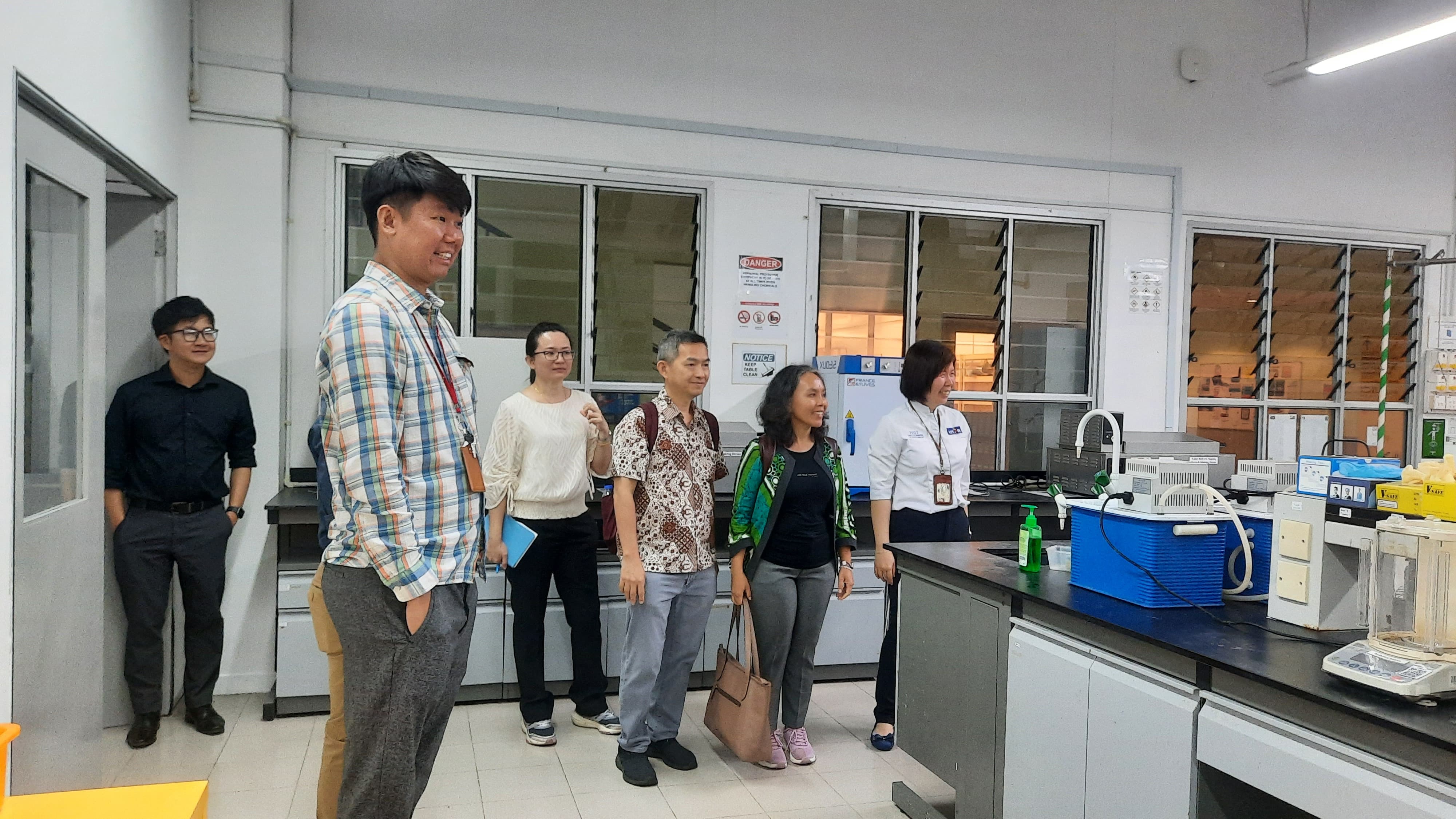
Kampar, Malaysia – The benchmarking visit was held for one day by Dr. Nesti F. Sianipar, S.P., M.Si and Anderes Gui, Ph.D were initiated in collaboration with Prof. Ts. Dr. Lim Yang Mooi, Director, Institute of Postgraduate Studies and Research, and the Chairperson of the Centre for Cancer Research (CCR) at the Faculty of Medicine and Health Sciences, Universiti Tunku Abdul Rahman, Malaysia. The activity began with a presentation of the Food Biotechnology Research Center profile followed by a laboratory tour.
It is expected that the FBRC and the CCR will be able to collaborate to conduct research through the use of in vitro or in vivo tests, as CCR has 22 types of cancer cells. These cancer cells provide a diverse range of models to study the disease’s behavior and response to treatments. Researchers can use them to evaluate the efficacy of new drugs and understand the mechanisms of cancer progression. This collaboration has the potential to accelerate the development of targeted therapies and improve patient outcomes.
However, cancer research collaborations often face challenges such as discrepancies in data sharing policies and differences in research priorities. Additionally, securing adequate funding and resources can be a significant hurdle. Overcoming these barriers is essential to ensure the success of joint efforts in developing effective cancer treatments. One strategy is to seek partnerships that may offer financial support in exchange for collaborative research opportunities. Additionally, applying for grants from government bodies and nonprofit organizations can provide the necessary funding. FBRC’s team offering matching grant research from PIB Binus and Utar to investigate the bioactive compound for new drugs development.
Establishing standardized data-sharing agreements can facilitate smoother international collaboration by ensuring all parties have equal access to critical information. Creating global networks and platforms for researchers to connect and share findings can foster a sense of community and open communication. Additionally, organizing regular international conferences and workshops can help bridge cultural and methodological gaps, promoting a more unified approach to cancer research. International academic partnerships can lead to the sharing of valuable resources and expertise, fostering innovation and breakthroughs in research. They also provide opportunities for cross-cultural exchange and learning, enhancing both institutions’ global perspectives. Furthermore, these collaborations can lead to joint publications, projects, and PhD students increasing the visibility and impact of research findings on a global scale. (03/10/2024).

Comments :